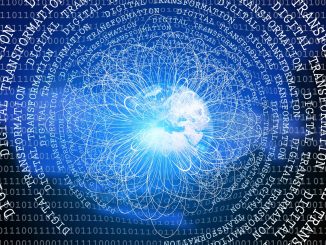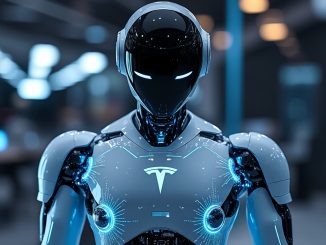Mo Gawdat: "there is no long-term in our world any more" because our world in 5 years will be unrecognizable pic.twitter.com/ffd4LTxUxU
— Tsarathustra (@tsarnick) August 6, 2024
Mo Gawdat, the former Chief Business Officer for Google X, has made a striking prediction about the future of human innovation in a recent interview with the YouTube channel High Performance.
Gawdat suggests that we are on the brink of a paradigm shift where artificial intelligence (AI) will surpass human capabilities in creative and innovative thinking.
“This is it. This is the end of human innovation,” Gawdat stated, explaining that the role of the innovator has traditionally been filled by the most intelligent entity in any given scenario.
With the rapid advancement of AI, he believes that machines are poised to claim this title, potentially rendering human innovation obsolete.
Gawdat’s forecast paints a picture of a world where AI not only assists in innovation but takes the lead. He predicts that within the next 5 to 10 years, up to 99% of human innovation may no longer require human input. This shift, he argues, is due to AI’s growing ability to write code, operate machinery, and access vast amounts of information.
The implications of this transition are profound and, according to Gawdat, largely unpredictable.
“The image of that world is something that I don’t know and I don’t know anyone that can predict,” he admitted, highlighting the uncertainty surrounding such a radical change in the innovation landscape.
Gawdat also touched on the potential for AI to revolutionize personal finance. He anticipates that by 2025, we may see AI agents capable of managing investments autonomously.
As an example, he suggested that people might soon be able to instruct an AI to invest a sum of money with specific return targets.
Perhaps most strikingly, Gawdat asserted during the interview that “there is no long-term in our world anymore,” predicting that our world will be unrecognizable in just five years. This statement underscores the exponential rate of change he foresees, driven by AI advancements.
While Gawdat’s predictions are certainly thought-provoking, they also raise important questions about the future role of humans in innovation, the job market, and society at large. As AI continues to evolve, it will be crucial for policymakers, businesses, and individuals to consider and prepare for the potential impacts of these technological shifts.
As we stand on the cusp of this potential AI-driven revolution, Gawdat’s insights serve as a call to action for society to engage in serious discussions about the future of innovation, work, and human purpose in an increasingly AI-dominated world.
- Bulenox: Get 45% to 91% OFF ... Use Discount Code: UNO
- Risk Our Money Not Yours | Get 50% to 90% OFF ... Use Discount Code: MMBVBKSM
Disclaimer: This page contains affiliate links. If you choose to make a purchase after clicking a link, we may receive a commission at no additional cost to you. Thank you for your support!




Leave a Reply